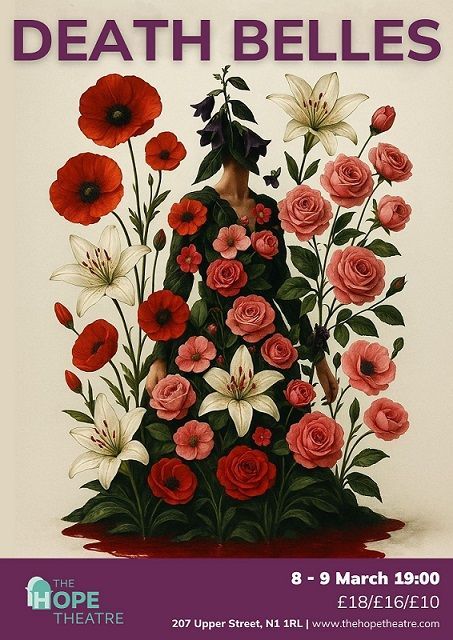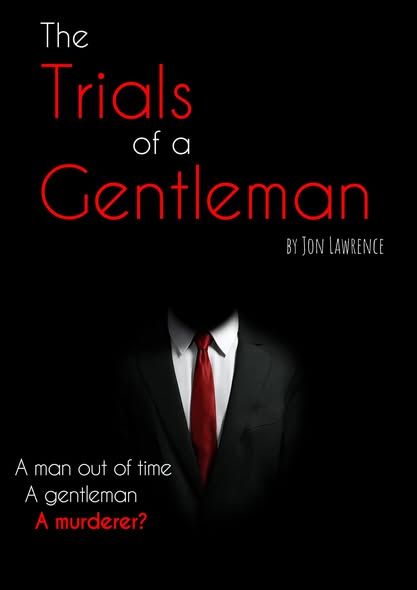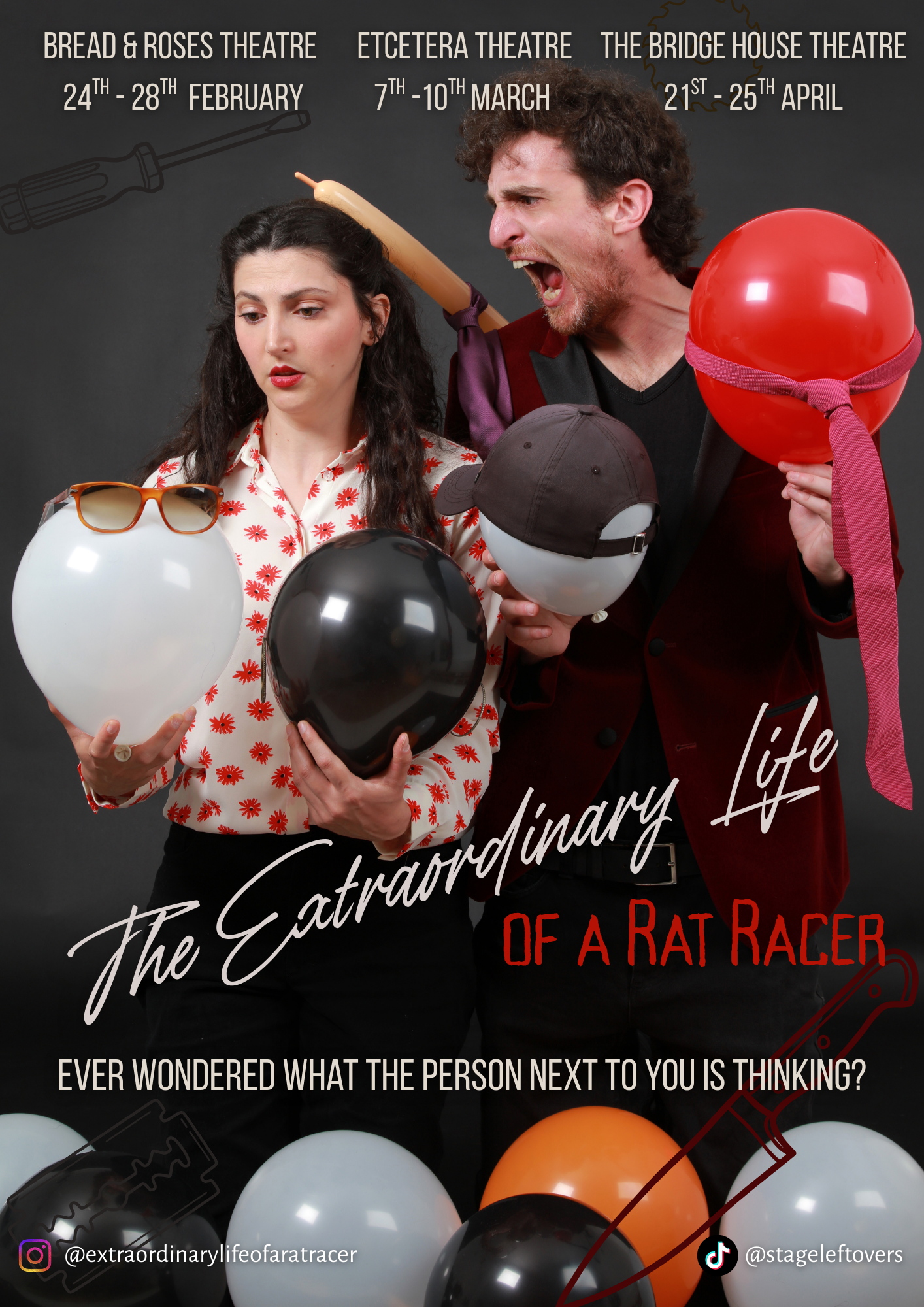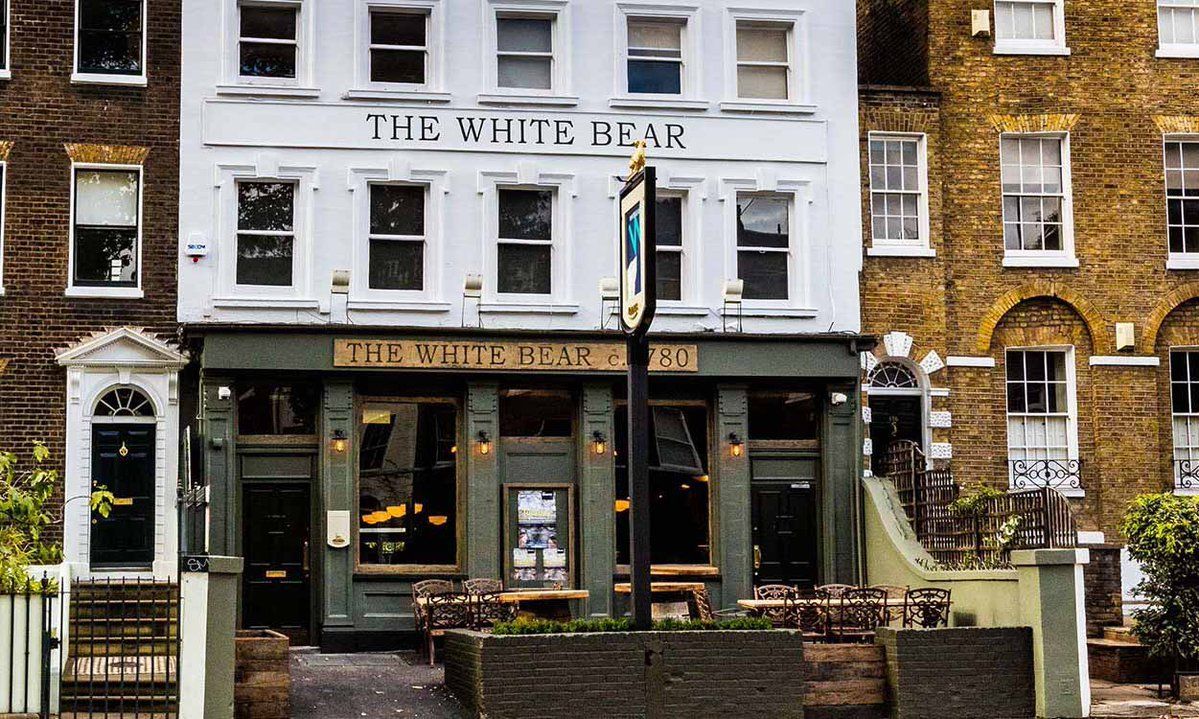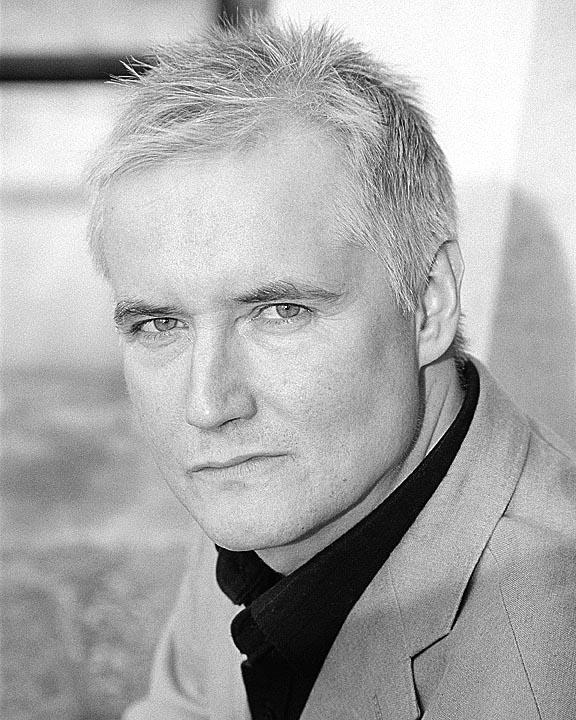Share
INTERVIEW WITH MICHAEL KINGSBURY ON HOW THEATRE WORKS TODAY: FROM GETTING THAT FIRST OPPORTUNITY TO GETTING A NUMBER ONE TOUR
by Heather Jeffery
Published June 2023
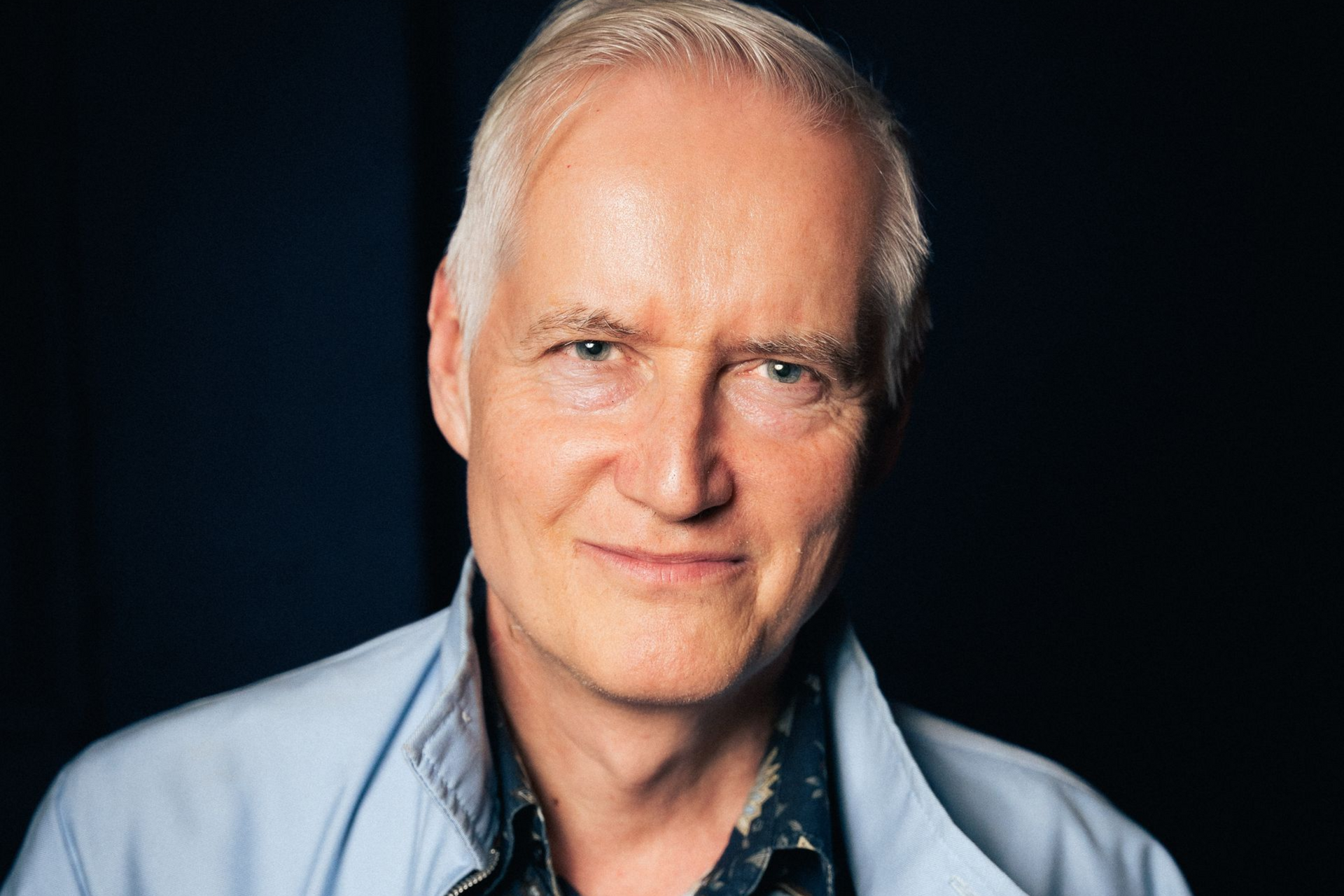
Michael Kingsbury is the living embodiment of the concept ‘man of theatre’ - he is actor, director, producer, and educator. He is founder and Artistic director of White Bear theatre in Kennington and was awarded 'Outstanding Contribution to Pub theatre' in 2022. In our interview, Michael talks about how theatre works today, from getting that first opportunity to getting a number one tour, with reference to four shows which started at White Bear Theatre.
GETTING A NUMBER ONE TOUR
Four shows which have recently gone on to larger theatres are DOM, MAGGIE AND TED, JUMPING THE SHARK and I FOUND MY HORN (at Riverside Studios 30 May - 11 June). Michael points out that “it’s extremely rare for new writing to go on tour or get to the West End.” He is rightly proud that three of the shows mentioned above are bang up to date, with I Found My Horn being a justly deserved revival.
Jonathan Guy Lewis in I Found My Horn by Jonathan Guy Lewis and Jasper Rees at White Bear Theatre, directed by Harry Burton / set design by Alex Marker (Photography: Alex Marker)
I Found My Horn was first performed in 2008 at the Aldeburgh Fringe Festival and then toured in the UK and USA. It came to the attention of Kingsbury and West End director Harry Burton (who brought Pinter’s The Dwarfs to White Bear in 2022). “We were talking about opening up a new version” explains Kingsbury “we put in some dates and had a set built for it by Alex Marker, who was resident designer at the Finborough for years.” It’s a joyous, feel-good show which places the transforming power of music centre-stage. Its recent sell-out run at the White Bear was picked up by Riverside Studios (the show is currently playing in Canada before opening in Hammersmith 30 May). “It was gaining momentum” smiles Kingsbury, but he’s quick to point out that “even if shows don’t go on to other venues, they’re still worth doing in their own right”. He is always keen to develop long-term relationships with creatives who work at his 50-seat studio. Kingsbury believes in “allowing the companies to use the space, working with them to help realise their project in the most exciting and effective way”.
“Dom has just finished at 670 seat Theatre Royal (March 2023)” says Kingsbury, “it went from White bear to The Other Palace studio, and was completely sold out, so we had to add extra dates.” Taking a play about Dominic Cummings (played by Chris Porter) to the heart of Westminster, was seemingly a master stroke. “Producers are hungry for the right project,” says Kingsbury “and places like white bear can generate these things.” It was picked up by West end producer Bill Kenwright and given a makeover for the larger venue using projections.
Chris Porter as Dominic Cummings in Dom, the play at the Other Palace
Michael McManus’ Maggie and Ted, which was also co-produced and directed by Kingsbury and transferred to the Garrick (2021). I ask him how the show came in to being? “It had three development readings at White Bear” explains Kingsbury “it’s a wonderfully clever, witty and often hilarious script but we needed to find a way of staging it that would release its full potential. Having directed successful radio theatre formats including the West End and touring hit Round The Horne…Revisited and the Offie nominated Men From The Ministry, I had the idea of setting it as a radio theatre show- with on air and recording signs -which really suited the material. I already had a studio style set in storage which helped!’’
Jumping the Shark, by David Cantor in collaboration with Kingsbury, started at White Bear Theatre, toured and then returned to another pub theatre, Upstairs at the Gatehouse in March 2023. “It’s a full set, we wouldn’t get it upstairs at the White Bear”. A larger pub theatre venue was needed after the show toured to 1100 seat Orchard Theatre (in the Dartford leg of the tour) and 1400 seat Queens Theatre (in Portsmouth). “The tour went down very well,” adds Michael. “It started as a conversation at a theatre bar, with writer David Cantor which gave us the idea of working on a sitcom masterclass”. The story is about a group of people who want to realise their dreams through comedy.
It helps that Kingsbury was bringing a wealth of experience to the table, his writing partner David Cantor worked with the late great John Sullivan on The Green Green Grass and Kinsbury worked with Brian Cooke ( writer of Man About the House/George and Mildred) and on a stage version of the hit radio show Round the Horne at White Bear (2003) which went on to have three number one tours, and a stint in the West End. “It was sublime material from Barry Took and Brian Cooke that teaches you a lot about structure, builds, and undercuts” says Kingsbury. It has all fed into co-writing Jumping the shark with such comedy techniques as “misleads, straight reverses, telegraphing, the rule of three, the law of C, as well as jumping the shark.” Kingsbury explains: “The law of C” tells us that some words are funnier than others …Coffee is funnier than tea and Carlisle is funnier than Burnley.”
Jumping the Shark at Upstairs at the Gatehouse March 2023
MICHAEL’S OWN ROUTE INTO THEATRE
Kingsbury’s own route into theatre started when he was about 14 when he was getting really interested in it. “I’d go to Saturday afternoon classes at Italia Conti to do acting and singing” says Kingsbury, “and used to keep it secret from my mates.” He was from a south London council estate and a comprehensive. “Lots of actors are, you’d be surprised” he says, and then asks, “don’t know how I come across now?” After all that training his articulation and pronunciation could give the impression of a far more privileged background. He continues his story: “I used to go around the back, so as not to be seen by my friends but I got caught … I pretended my uncle was a caretaker at the school.” Later he went to Central School of Speech and Drama where he studied acting for 3 years. Getting into Central is very tough, but it had its rewards as he did regional plays from Leicester Haymarket, to Theatre Clwyd and Manchester Royal Exchange. He also picked telly parts. Just three years after leaving Central he came across the empty space at White Bear pub and created The White Bear Theatre. “It was exciting but a curious and unusual journey, but magical in so many ways and I’m very thankful for it” says Kingsbury. “The most rewarding part of running the theatre is being able to develop incoming shows, and allow practitioners to realise their projects in the most effective way." (His team at the White Bear are very hands on and constantly engage with the companies they host.)
The White Bear Theatre gave him the opportunity to try directing and writing. “It was like having a train set as a kid, experimenting with it, and I’ve been very lucky” says Kingsbury. He’s very proud of his recent successes particularly Jumping The Shark and Dom the Play, both directed by himself. “It’s because you can try them out in a smaller theatre” he explains. “The essence and the joy of what we do is often in the primary development ground; you can’t go straight into the Royal Court or The Royal Exchange.” But people who start at the White Bear often go on to much bigger things, such as director Simon Evans. He’s now working extensively in the west end has a hit television series Staged with Judie Dench, Michael Sheen and David Tenant. The theatre has also provided a development platform for a new generation of theatre makers including Ruby Thomas, Poleroid Theatre, The Ugly Sisters and Martha Watson Allpress.
There are those defining moments in a career and for Kingsbury there have been many, and he mentions just a few of these. A whole season dedicated to Sam Shepherd’s plays which he co-directed with Tom Morris. “Sam came over at the end and gave a presentation of his plays and did a question and answer” recalls Kingsbury, “and then all the directors went for a curry with Sam afterwards.” Other highlights for Kingsbury included having his first play on Time Out Critic’s Choice, directing Contact.com which played at the main house at The Park Theatre along with All Manner of Means and Seduced which played at the Finborough and three plays at King’s Head Theatre.
On the other hand, there are also those moments that define some of the tribulations of a career in theatre. White Bear is now a purpose- built theatre above a gastro pub, but in the early days it was a room downstairs in a traditional pub. “It used to be a bit of a sports pub before, and I got rather nervous about someone scoring a goal” admits Kingsbury. “Once, someone came in during a press night, stood in the middle of the stage and wouldn’t leave; I had to push him out the door, managed it somehow … they didn’t mention it in the press though.” It’s one of Kingsbury’s favourite stories, and he still seems terrified by the memory. “Now, it wouldn’t happen because the theatre’s upstairs” he adds, nervously. The move upstairs took almost a year, but Kingsbury used the time to plan and re-equip. "It took considerable thought to find a way of making it work upstairs, but bringing in an architect who also writes plays, really helped and we came up with the current layout."
WHAT MAKES A SUCCESSFUL PLAY / FUNDING / FINAL WORDS
Back to the serious business of making theatre and the question about what makes a successful play. “I’m like a lot of us in theatre, left of centre” says Kingsbury, “I love political theatre but it has to combine the personal and political.” Personally, he doesn’t like agitprop, he likes a play to be embedded in metaphor and character. Harold Pinter was an influence on Kingsbury’s writing with his “semi absurdist plays, a master of what’s hidden.” Kingsbury was “lucky” to be in “three or four Pinter plays” and to direct Pinter’s The Caretaker on a British Council tour of Vienna, plays which taught him about “subtext and rhythm.”
What he’d really like to see is a structure where venues like White Bear, get core support from the Arts Council. “Even 50,000 a year so that we could award grants to companies which they have to match. This could have a transformative effect as the venues are well placed to assess applications and can meet up and get to know the companies who apply on a more personnel level.
The White Bear offers free rehearsals and box office splits to help keep costs for down. The White Bear has very strong support from its local community and Kingsbury is very much part of that. “I’m from Kennington and we’ve got a very strong local audience which helped us after lockdown, people kept coming in, residents association, friends of the local library and the local council."
For Kingsbury theatre is a calling, he has a sense of being very fortunate to be part of this world. “For me it’s about enjoyment, of enabling individuals and companies to try out new work” he explains. At the same time, he continues with his own work: writing, putting plays on and directing. “So many of the projects outlined here have started at the White Bear” he says. He reinforces the thought that “the pub theatre sector is an area of experimentation and development”.
“It can’t necessarily make huge political difference, but it is a huge part of the arts and entertainment sector,” he says. “People empathise with what they see, they become more sensitive towards it, learn about new worlds. Create a new work that’s not just a cold political idea, it has the soul of a person or a household, it’s connecting with something bigger than yourself, that’s the attraction and the magic.”
“I suppose I am driven by what I do, but also driven by these extra projects, doing fringe and then much larger scenarios,” he pauses. “I don’t see it as disconnected, what’s launched me into those bigger worlds is a little 50-seater in a pub.” He knows that many companies and individuals go on to places from the pub theatre circuit but not all of those people give credit to those earlier opportunities. “Some mates at other venues say the same thing,” confirms Kingsbury, “it’s as if they’ve just emerged out of the blue”.
Best of all, Kingsbury likes to see new plays. “I hope to see things that are stimulating and passionate” he affirms “I’m also looking at the mechanics of how the play is produced and written, even if it doesn’t work, you’re still learning by observing.” He also loves reading plays (he reads a lot) and working on his own writing: “Cooking up these crazy projects”. To garner publicity for the Dartford leg of the tour (at Orchard Theatre) for JUMPING THE SHARK, David Cantor and Kingsbury arranged a sitcom competition for 5 minutes scenes which they judged in conjunction with a local newspaper. “They’re pretty good, got it down to the last three, we had other people helping with the reading of course” he mentions.
When asked what really makes him happy, he takes a moment to consider. “It’s joyful when companies get nominations, or good reviews” he smiles knowingly, “or find out that they’re taking the play somewhere else, and you see people’s confidence bloom, it makes a big difference.”
Final question. Is it all about love? “I think it is about love … of what you’re doing and passion and just the excitement of being in the room with like-minded people, planning, cooking up projects, it’s incredibly rewarding.
I FOUND MY HORN transfers to Riverside Studios 30 MAY - 11 JUNE 2023
Reviews (for run at White Bear Theatre January/February 2023):
“Funny, serious, moving. A gem” ★★★★ Sunday Times
“This solo stage show is a real winner... a triumph – warm, wonderfully funny and touching... Jonathan Guy Lewis is utterly engaging” ★★★★ The Stage
ARCHIVE INTERVIEWS:
